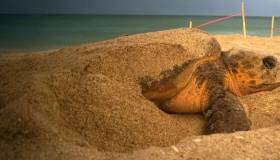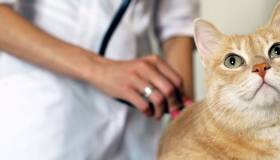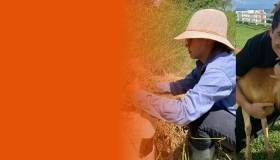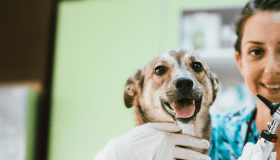February 23, 2016 – The hot and humid Florida summers didn’t discourage Brad Ahrens from playing each summer in the swamp behind his grandmother’s house. Dressed up like a safari guide, young Brad was armed with a wildlife guidebook, snake pole, a backpack full of his grandmother’s empty jars, and a healthy love of all things creepy and crawly.
“I would set off every day to catch and identify every creature I could find,” said Dr. Ahrens. “While not quite publishable research, you could say this was my first taste of field work.”
Dr. Ahrens’ fascination with unusual species continues today. Not many veterinary scientists are interested in invertebrates, but he feels this area is worthy of study.
“Mammals as a whole have only been around on earth for a minuscule amount of time compared to other species such as insects and reptiles,” said Dr. Ahrens. “My primary goal in expanding knowledge of nontraditional species is to elucidate the mechanisms that allowed these species to survive and evade disease for millions of years.”
Dr. Ahrens is a past recipient of a Morris Animal Foundation Veterinary Student Scholarship. He currently is completing a residency in laboratory animal medicine and PhD program at City of Hope National Medical Center and the University of Southern California. He also is a teacher, lecturer on laboratory animal care, and zoo veterinarian.
Dr. Ahrens’ Veterinary Student Scholarship project involved characterizing the types of bacteria present on the fangs of black widow spiders. He found that these spiders often had multiple antibiotic-resistant bacteria.
Morris Animal Foundation started the Veterinary Student Scholar program in 2006 to provide research experience to aspiring veterinary students. As of 2015, the foundation had invested $1.58 million in 419 student projects.
For Dr. Ahrens, receiving a scholarship not only helped advance his career, it generated important data that fundamentally changed the way many human physicians treat spider bites.
“This opportunity and support by Morris Animal Foundation gave me the confidence to continue my research, and today I have my own invertebrate lab at City of Hope,” said Dr. Ahrens. “Now I have the opportunity to share this experience with the next generation of veterinary students who are interested in exotic animal research and are applying for VSS grants themselves!”
Morris Animal Foundation has a long-standing commitment to provide funding to promising future scientists, as well as invest in unconventional and creative research projects. Visit Morris Animal Foundation to learn more about our VSS program and exotic animal studies.




